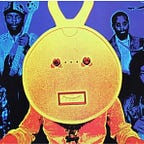Transcending borders with the pianist Herbie Hancock
“Music happens to be an art form that transcends language.” Herbie Hancock
Herbert Hancock aka Herbie Hancock is an American jazz pianist, keyboardist, and composer born in April 1940 in Chicago, Illinois. He is one of the most influential jazz musicians of his generation and a tireless explorer. Few artists have developed such a broad musical palette as this living jazz legend.
Like many jazz pianists, Hancock began his training with classical music. He discovered jazz in his teens, with recordings by Oscar Peterson, George Shearing, but also McCoy Tyner, Bill Evans, Miles Davis…
After three years of study at Grinnell College, he was hired by Donald Byrd in 1961, putting his studies on hold (he finished his degree in Electrical Engineering and Music in 1971). The young pianist quickly made a name for himself with Oliver Nelson, Phil Woods… He recorded his first album as leader Takin ‘Off for Blue Note in 1962 and was noticed by the great Miles Davis who formed a new group.
Herbie Hancock, then 23 years old, joined Miles Davis’ quintet, with bassist Ron Carter, Wayne Shorter and Tony Williams. The young Herbie Hancock was ambitious and had a very clear picture of the jazz he wanted to play:
“It’s not about competing with classical music, but about building an art form that has nothing to envy it”.
Hancock developed his style, popularizing new chords and innovating with extremely complex rhythms around the melody and chords. Hancock also recorded sessions under his own name and accompanied other musicians such as Lee Morgan, Freddie Hubbard…
His albums Empyrean Isles (1964) and Maiden Voyage (1965) made jazz history, winning several awards for their innovation, and the songs on them were covered many times. Hancock was appreciated and his status extended beyond the stage, and he was asked to compose the soundtrack to Michelangelo Antonioni’s film Blow-Up, the first of many.
Miles Davis explored new territory and integrated rock elements into his compositions and asked Hancock to play on an electronic keyboard. Hancock was particularly reluctant to accept this idea, but he adapted and became attached to the instrument, which would later play an important role in the direction of his music. He was nevertheless dismissed from Miles’ quintet in the summer of 1968, due to a dark story of his honeymoon in Brazil.
Musically, he followed Miles’ revolution, founded his sextet and released the album Fat Albert Rotunda, which oscillated between jazz and fusion. Hancock is interested in gadgets and instrumental revolutions, he mixes electronic and acoustic instruments to his heart’s content… he follows Miles’ lead in experimental adventures.
After several albums, Hancock wanted to return to funkier music. His experiments did not always meet with success and his previous albums did not sell well. He founded the group The Headhunters, consisting of Bennie Maupin, Paul Jackson, Bill Summers and drummer Harvey Mason. It was a success! The Head Hunters album, released in 1973, met with public and media acclaim, and the freshness and energy of the album influenced jazz, funk, soul and hip-hop.
During the 1970s, Hancock played with former members of Miles’ quintet, with the exception of Davis who was replaced by trumpeter Freddie Hubbard. He also recorded a mythical duo with Chick Corea. The pianist never ceased to explore new terrain, even trying his hand at vocoding in 1980 with Feets, Don’t Fail Me Now.
In 1983, Hancock had a huge success with his Grammy-winning hit Rockit. The first mainstream song to feature scratching (a technique of placing a vinyl record on a turntable and moving your arm back and forth along the groove). The video clip is a model of its kind, with a breakdancing robot! It will be a great source of inspiration for video makers and electro musicians.
Hancock has opened and continues to open new horizons for jazz by influencing mainstream music trends and pop-funk fusion. From his acoustic duet with Chick Corea, to his hit Rock-it, to his tributes to Miles Davis and film scores, he has never stopped distributing in all directions and in all forms, with a rare happiness and a lot of musical generosity with an apparent ease, a delicate touch and a phenomenal rhythmic play.
